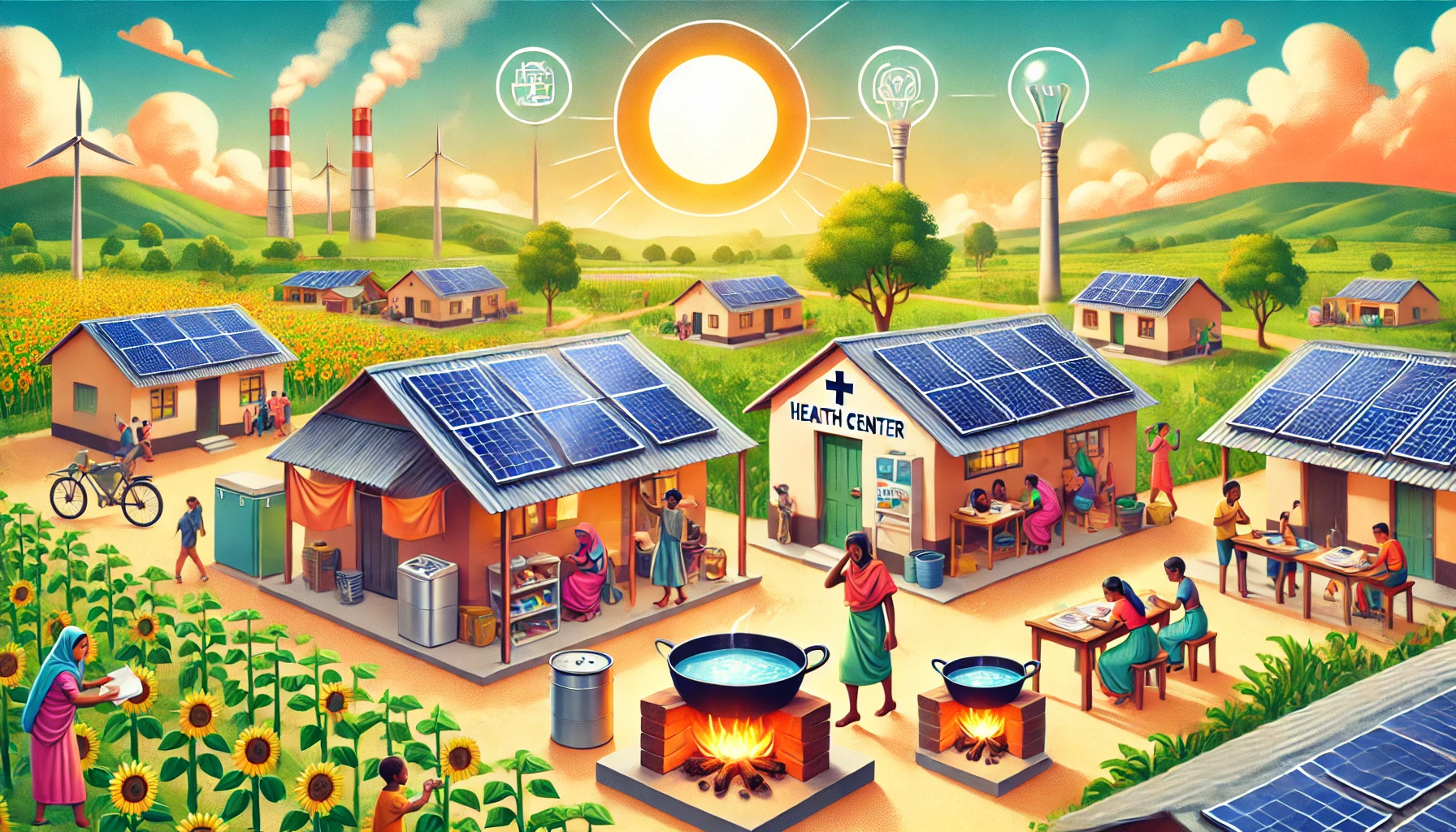African Nations Commit to Clean Cooking Solutions to Combat Health and Environmental Impacts at Africa Energy Summit
Scott, whose company Burn Manufacturing is the largest clean cooking stove manufacturer in Africa, highlighted the diverse solutions being implemented across the continent.

12 African countries take bold steps toward providing clean cooking solutions to reduce the annual deaths of 600,000 women and children caused by traditional cooking methods, with strong backing from international financial institutions and innovative technologies.
At the Mission 300 Africa Energy Summit, held in Tanzania on 27-28 January 2025, 12 African nations committed to accelerating access to clean cooking solutions to address the devastating health, environmental, and economic consequences of traditional open fire cooking. This move aligns with the United Nations' Sustainable Development Goal 7 and the African Union's Agenda 2063. The initiative aims to tackle the crisis that claims approximately 600,000 lives annually, mostly women and children, across the continent.
Tanzania Leads the Charge for Clean Cooking Solutions
Tanzanian President Suluhu Hassan, who serves as the global Clean Cooking Ambassador, highlighted the commitment of the 12 governments and stressed the importance of expanding this initiative to include other countries in the future. In her closing remarks, she said, “I understand that the 12 governments have only pioneered, and many others will join us in the future.” Earlier, she noted the summit's purpose was to drive momentum toward the 2030 goal of ensuring universal access to clean cooking solutions.
The summit was organized by the Government of Tanzania and Mission 300, a collaborative effort involving the African Development Bank Group, the World Bank Group, and other global partners. Mission 300 aims to bridge Africa’s electricity access gap by introducing innovative financing and technology solutions.
A Critical Need for Clean Cooking Solutions
Rashid Abdallah, Executive Director of the African Energy Commission (AFREC), led a panel discussion that underscored the dire situation in Africa, where 600 million people still live without access to electricity. However, the crisis is even more severe in the cooking sector, with 1 billion Africans relying on harmful biomass fuels such as wood and charcoal for cooking. The economic, social, and environmental costs of this reliance are staggering, with conservative estimates putting the annual cost of the cooking crisis at $790 billion across the continent.
Panelists, including Dr. Richard Muyungi, Special Envoy to the President of Tanzania, Peter Scott, CEO of Burn Manufacturing, and Martin Kimani, CEO of M-Gas, emphasized the urgent need for clean cooking solutions. Dr. Muyungi praised President Hassan’s leadership and the creation of Tanzania’s National Clean Cooking Strategy, which aims to transition 80% of the population to clean cooking technologies by 2034.
Innovative Approaches and Private Sector Engagement
Scott, whose company Burn Manufacturing is the largest clean cooking stove manufacturer in Africa, highlighted the diverse solutions being implemented across the continent. These include fuel-efficient biomass stoves and electric cooking appliances with pay-as-you-go financing models. He emphasized the availability of funding for clean cooking projects, contingent on the approval of carbon credit regulations by governments.
Kimani shared the success of M-Gas, which has developed a pioneering pay-as-you-cook LPG model. The company has enrolled half a million households in Kenya and Tanzania within just three years, demonstrating the scalability and affordability of such solutions. Kimani explained how M-Gas’s IoT-enabled smart meters have made LPG cooking accessible to households without requiring upfront payments.
National Efforts to Promote Clean Cooking
Tanzania’s efforts to address the clean cooking crisis are already yielding significant results. The country has published a comprehensive clean cooking strategy for 2024-2034, focusing on reducing health risks and environmental damage caused by traditional cooking methods, such as deforestation. President Hassan’s clean cooking agenda has become part of Tanzania’s national priorities, and the country is now seen as a leader in the region.
In recognition of national innovation, Tanzania awarded prizes for clean cooking solutions at the summit. Winners included creators of a biogas production plant and a click gas LPG delivery system. These solutions highlight the potential for innovation in clean cooking and the importance of fostering homegrown solutions to address local challenges.
A Call for Global Investment in Clean Cooking
The African Development Bank Group pledged $2 billion over the next 10 years toward clean cooking solutions in Africa, contributing to the $4 billion per year needed to provide clean cooking solutions to all African households by 2030. In his remarks, African Development Bank President Akinwumi Adesina passionately called for an end to the unnecessary deaths caused by traditional cooking methods. “Why should anybody have to die just for trying to cook a decent meal that is taken for granted in other parts of the world?” he asked. He emphasized that Africa must pursue development with dignity and ensure that all citizens, particularly women, have access to clean energy solutions.
Moving Toward a Sustainable Future
The Mission 300 Africa Energy Summit highlighted the critical importance of clean cooking solutions for the health, environment, and economy of Africa. With strong political will, innovative technologies, and international partnerships, African nations are poised to tackle the cooking energy crisis and pave the way toward a cleaner, healthier, and more sustainable future. As more countries join the initiative, the path to achieving universal access to clean cooking by 2030 seems more achievable than ever.
- READ MORE ON:
- Mission 300 Africa Energy Summit










